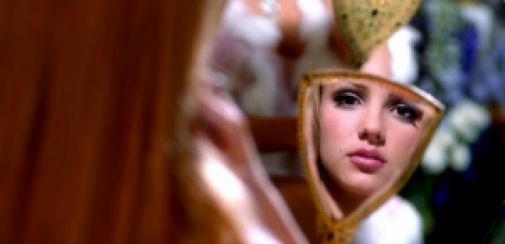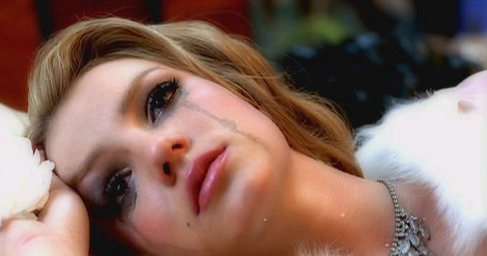Has any recent pop star ever so eloquently captured the meaninglessness of life than Britney Spears with “Lucky”? Quite simply, no. Released at a time of relative uncertainty, when Gore and Bush were competing for the White House and most everyone was lacking faith in a future after the 90s, “Lucky” only served to highlight the point that there was little satisfaction in the comforts of capitalism.

Through the lens of a tortured movie star subject to the whims of schedules and sycophants, Spears tells us the tragic story of Lucky, a girl who has it all, yet feels nothing. Reciting the drudgery of Lucky’s mornings, Spears drones, “It’s time for makeup, perfect smile/It’s you they’re all waiting for.” But who does Lucky wait for, one might ask? There’s no special person in her life, no human of any real substance.
The sheer monotony of Lucky’s existence is further accented as various hair and makeup people groom her while she stares off into the distance or talks angrily on the phone. This leads to the ultimate question of the rich Western world: “If there’s nothing missing in my life, then why do these tears come at night?”

In the end, Spears subtly broaches upon the subject of death with the query, “And the world is spinning and she keeps on winning, but tell me, what happens when it stops?” The “it” being referred to holds the double meaning of both success and life. Never before this moment in 2000 has such an overtly frothy pop star dared to come this close to what some might very well call philosophical. Knowing that Lucky’s old age and eventual demise will leave her with nothing but a lifetime of regret to look back upon, Spears infers that material riches are as useless as they were when Madonna sang about them ironically in 1985 on “Material Girl.”





















